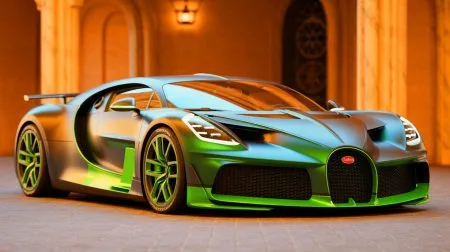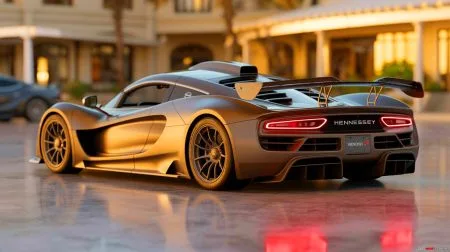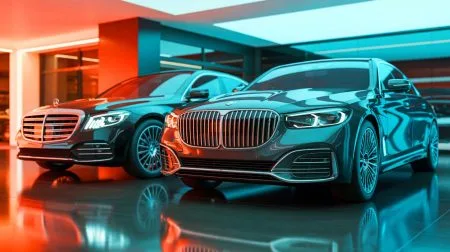The clock is ticking for one of the automotive world’s most distinctive mechanical symphonies: the Audi five-cylinder engine. At the heart of rally legends and performance sedans alike, this powerplant has defined an era, roaring from the forests of Group B racing to the highways of daily life. Yet, by 2027, these unmistakable notes will fade, orchestrated by a combination of looming emissions restrictions, shifting market demand, and a new technological composition across the industry. While rivals like BMW, Mercedes-Benz, and Porsche continue to innovate on their respective terrains, Audi’s decision signals a poignant turning point. There is a narrative to every iconic departure, and in these final laps, we revisit how the five-cylinder became an Audi signature, why it is being retired despite technical prowess, and what echoes it leaves for enthusiasts—and the broader Volkswagen family—across the globe.
Audi’s Five-Cylinder Engine: From Legend to Last Laps
Born in the late 1970s, the 2.5-liter inline-five changed Audi’s destiny. The engine’s offbeat rhythm powered not just the Audi 100, but soon after, the thunderous Quattro rally cars that would redefine the brand’s image. Squeezing performance and charm between compact and straight-six engines, this configuration became an emblem, an unmistakable soundtrack discerning car enthusiasts still seek out. Over the decades, the five-cylinder made its home in icons like the TT RS and RS Q3, but as 2025 dawns, only the RS3 remains. Sales, however, are a shadow of their former selves, and new Euro 7 emissions regulations in Europe accelerate the sunset of this legacy, even as Audi admits it could engineer a compliant version. The reality is both economic and emotional: demand is low, and priorities have shifted.
| Model | Five-Cylinder Era | Status in 2025 |
|---|---|---|
| Audi TT RS | 2016–2022 | Discontinued |
| Audi RS Q3 | 2013–2023 | Discontinued |
| Audi RS3 | 2011–Present | Final model, ending 2027 |
| Cupra Formentor VZ5 | 2021–2024 | Discontinued |
| VW Golf (Special Model) | 2025–2027 | Planned limited run |
The Influence of Audi’s Five-Cylinder Engine Across the Volkswagen Group
The five-cylinder wasn’t Audi’s exclusive treasure. Volkswagen, searching for ultimate combustion thrills, also eyed this block for limited special editions. Even Cupra dared to release the Formentor VZ5, squeezing out thrills before stricter regulations. The discussion inside the Volkswagen Group reflected larger industry tensions—the balance between nostalgia, engineering pride, and environmental pressures. Meanwhile, giants like Toyota, Volvo, Subaru, Nissan, and Ford strategized alternate powertrains independent of the five-cylinder’s distinctive magic, focusing on electrification or different cylinder layouts to meet fresh regulations and expectations.
Euro 7 Regulation and the Endgame for Audi’s Heritage Engine
As November 2027 looms, the Euro 7 regulation forms an inevitable boundary: all sales in compliant markets must adhere to stringent emissions and efficiency standards. Audi’s CEO has openly stated that technical compliance isn’t out of reach. Yet, with RS3 Sportback and Sedan sales declining, the justification for heavy investment fades. Global market realities steer decisions—even for a brand so closely tied to its heritage sounds. This isn’t just a European story; it resonates in the US and Asia, where legislative harmonization often drives parallel phase-outs.
| Regulation | Effective Date | Impact on Five-Cylinder |
|---|---|---|
| Euro 7 (newly launched) | Nov 2026 | Not immediately impacted |
| Euro 7 (all sales) | Nov 2027 | Five-cylinder phased out |
Tension Between Innovation and Tradition in Audi, Porsche, and Volkswagen
Within the executive suites, debates play out in muted tones. Audi’s Concept C, revealed at Munich’s IAA Mobility Show, previews an all-electric future, shutting the door on any combustion engine. The vision will ride on a platform shared with Porsche’s electric Boxster and Cayman, marking a clear shift for both brands. Volkswagen and Audi considered pairing the five-cylinder with new sports projects—even a rear-drive R8 or a special Golf—but ultimately, those ideas fell silent, echoing the tough decisions at Ford, Mercedes-Benz, and BMW as each navigates electrification and regulatory realities. In this context, strategy is about survival as much as innovation, and cherished signature sounds may be left by the wayside.
RS3’s Farewell: The Last Hurrah for Audi’s Five-Cylinder
The final years are not without celebration. Before the curtain falls, Audi is reportedly preparing a more powerful RS3, both as a tribute and a definitive expression of what’s possible with the five-cylinder architecture. Rumors swirl of Volkswagen leveraging the engine one last time for an ultimate Golf, drawing on a sense of camaraderie across brands and a nod to shared history. When production finally ceases in Ingolstadt, it will complete a saga begun with the Audi 100 C2 in 1976—a story of ingenuity, risk, and emotional attachment that has outlasted countless trends.
| Event | Year | Significance |
|---|---|---|
| First Audi five-cylinder (Audi 100 C2) | 1976 | Innovation milestone |
| Quattro rally dominance | 1980s | Motorsport legend status |
| End of RS Q3, TT RS | 2022–2023 | Key model departures |
| Last RS3 production | 2027 | Final five-cylinder Audi |
Shifting Tides: What’s Next for Performance Icons?
The void left by Audi’s five-cylinder may never be filled in quite the same way. Ford, Volvo, Nissan, and Subaru—each with their own history of distinct engine configurations—have faced the same challenge: maintaining identity while meeting new norms. As electrification accelerates, especially under Mercedes-Benz, BMW, and Porsche’s banners, the character once embodied by sound and vibration now finds its home in software, handling, and battery innovation. Yet, for the seasoned technician or everyday driver who once felt the pulse of an inline-five, those memories will remain palpable, even as the exhaust note fades. By punctuating this transition with a final flourish, Audi ensures that the five-cylinder’s legacy will long outlive its production numbers, joining the pantheon of significant engineering chapters in automotive lore.
Questions fréquemment posées sur la fin du moteur cinq cylindres Audi
Why is Audi discontinuing the iconic five-cylinder engine despite it meeting emission standards?
Audi could technically update the engine for Euro 7, but weak global demand and high investment costs for a niche model made the project unsustainable.
Will the five-cylinder continue outside Europe?
While theoretically possible, Audi’s market analysis indicates insufficient sales volume worldwide to justify continued production elsewhere.
Are there any plans for a four-cylinder RS3 replacement?
Audi has not confirmed any successor, and past statements suggested reluctance to use a four-cylinder for RS models, especially as electrification gains pace.
Is the five-cylinder engine used by other Volkswagen Group brands?
Yes, besides Audi, the engine powered models like the Cupra Formentor VZ5, and may see a final appearance in a special Volkswagen Golf edition.
How does the decline of Audi’s five-cylinder compare to other brands’ engine retirements?
Similar transitions are happening across the industry, as BMW, Mercedes-Benz, Porsche, Ford, Toyota, Volvo, Subaru, and Nissan adapt to strict emissions standards and the rise of electric vehicles.
Did you like it? 4.3/5 (20)





